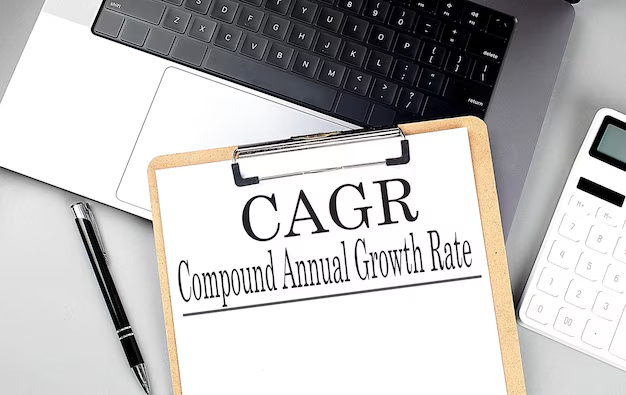Your Guide to Has Uniti Stopped Paying Dividends
What You Get:
Free Guide
Free, helpful information about Dividend FAQ and related Has Uniti Stopped Paying Dividends topics.
Helpful Information
Get clear and easy-to-understand details about Has Uniti Stopped Paying Dividends topics and resources.
Personalized Offers
Answer a few optional questions to receive offers or information related to Dividend FAQ. The survey is optional and not required to access your free guide.
What's the Current Status of Uniti's Dividend Payments?
In the world of investing, dividends play a crucial role for many shareholders who seek regular income from their investments. For those invested in Uniti Group Inc., understanding the state of its dividend payments is essential. Has Uniti stopped paying dividends, or are there changes in their dividend policy? Let's dive into this topic to understand the nuances and implications for current and potential investors.
📈 Understanding Dividends and Their Importance
Dividends are a portion of a company's profits paid to shareholders as a reward for investing in the company. They signify a company's financial health and often influence investor sentiment. Many investors rely on dividend payments for passive income, making them a critical subject in investment discussions.
Uniti Group Inc., a name familiar to investors in the communications infrastructure sector, has historically been a dividend-paying company, luring income-focused investors. As economic landscapes shift and companies reevaluate their financial strategies, understanding any changes in dividend policies is vital.
🏢 About Uniti Group Inc.
Uniti is a real estate investment trust (REIT) specializing in communications infrastructure, notably in providing fiber optic networks. The company leases its infrastructure to various communication service providers. As a REIT, Uniti is obligated to distribute the majority of its taxable income to shareholders, often in the form of dividends. This model offers investors potential exposure to real estate income without directly owning property or infrastructure.
💼 Recent Changes in Uniti's Dividend Policy
Uniti's management has faced some challenging times recently. Market fluctuations, financial restructuring, and changes in industry regulations can influence a company's decision on dividend payments. Companies might pause or adjust dividends when facing uncertain economic conditions, aiming to stabilize their finances and support long-term growth.
Some observable trends indicate that companies in similar sectors often adjust their dividends to maintain liquidity during volatile periods. The focus typically shifts toward preserving cash flow, funding enterprise projects, and reducing debt exposure.
Key Considerations Behind Dividend Adjustments
- Financial Stability: Companies in distressed financial conditions might halt or reduce dividends to bolster their financial standing.
- Market Conditions: External economic factors and market pressures can prompt companies to reassess dividend payouts.
- Regulatory Environment: Changes in regulations can impact industry operations, prompting companies to reconsider their financial commitments.
- Strategic Investments: Redirecting funds from dividends to investment in infrastructure or technology can be a strategic move for long-term benefits.
📊 Analyzing Past and Present Dividend Trends
Historically, Uniti's dividends have been an attractive feature for investors, but recent decisions about altering, pausing, or stopping these payments warrant closer scrutiny.
Observational Trends:
- Economic Shifts: Broader economic conditions can force companies to adapt quickly, impacting dividend consistency.
- Revenue and Earnings Impact: Companies with fluctuating revenues or earnings may face challenges in sustaining high dividend payouts.
- Debt and Liabilities: High levels of debt or unforeseen liabilities may necessitate adjustments in dividend strategies.
- Investment Prioritization: A focus on future growth could lead to temporarily lower dividends, allowing for reinvestment in core business areas.
🔄 Possible Resumptions and Investor Considerations
When companies like Uniti stop or alter dividend payments, it's critical for investors to assess possible scenarios and align their strategies accordingly.
Investor Considerations:
- Future Projections: Stay informed about the company's projections and strategic vision. Management communication often signals forthcoming changes.
- Income Diversification: Adjust portfolio strategies, considering alternative income avenues or REITs with consistent dividend histories.
- Long-Term Growth vs. Short-Term Gains: Assess whether holding on through potential dividend reinstatements aligns with long-term investment goals.
- Industry Peer Performance: Compare Uniti's performance relative to industry peers to understand broader sector impacts.
📌 Practical Summary Points for Investors
Here's a concise summary to guide decision-making about dividends and investments:
- Monitor Management Communications: Transparency from Uniti's leadership can provide clues to future dividend policies.
- Assess Market Conditions: Understanding economic shifts helps predict potential changes in dividend strategies.
- Evaluate Financial Health: Scrutinize Uniti's balance sheet and revenue streams to gauge dividend viability.
- Diversification Strategy: Consider diversifying beyond REITs to enhance income stability and minimize risk.
- Stay Informed: Regularly review industry reports and expert analyses to stay ahead of market dynamics.
💡 Final Insights
Investors reliant on dividends for steady income must remain agile, particularly when companies like Uniti face strategic shifts. The balance between immediate income needs and long-term portfolio stability often requires careful consideration.
While changes in dividend payouts can be unsettling, they could also signal a company's dedication to prudent financial management, benefiting shareholders in the long run. By staying informed and adjusting strategies as needed, investors can navigate these developments with confidence. Ultimately, proactive planning and informed decision-making are key to thriving in the constantly evolving investment landscape.
What You Get:
Free Dividend FAQ Guide
Free, helpful information about Has Uniti Stopped Paying Dividends and related resources.

Helpful Information
Get clear, easy-to-understand details about Has Uniti Stopped Paying Dividends topics.

Optional Personalized Offers
Answer a few optional questions to see offers or information related to Dividend FAQ. Participation is not required to get your free guide.


